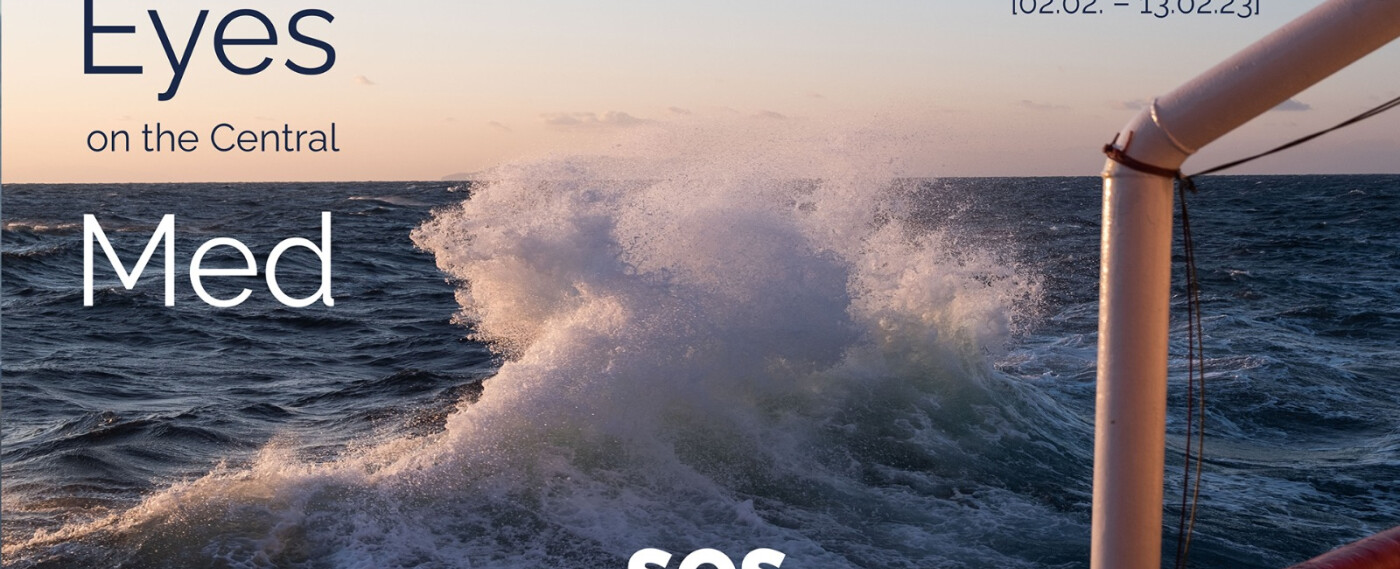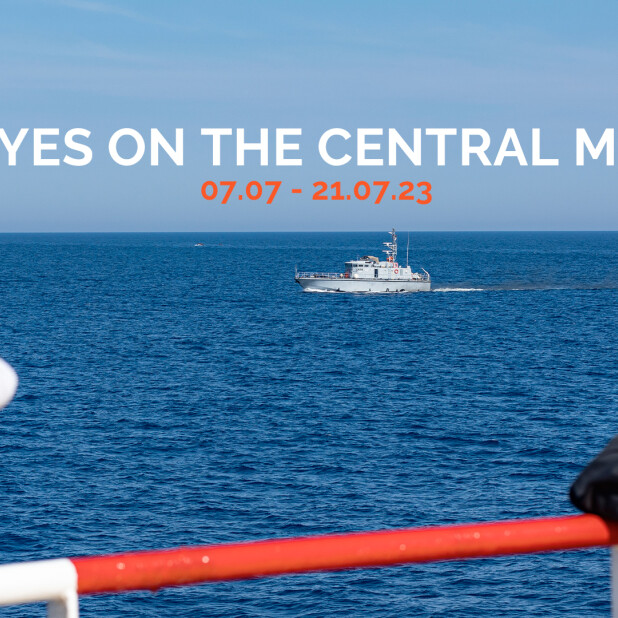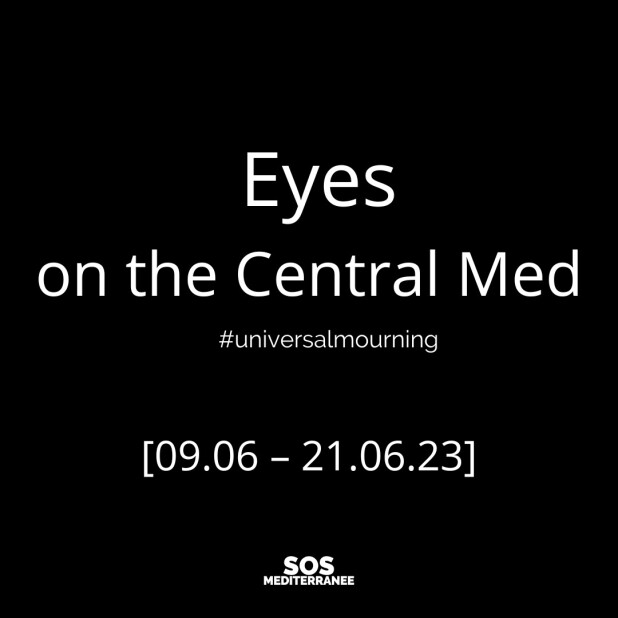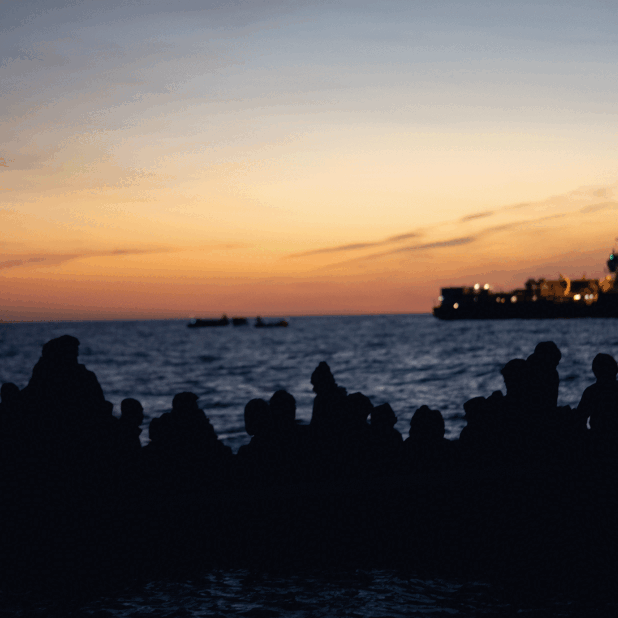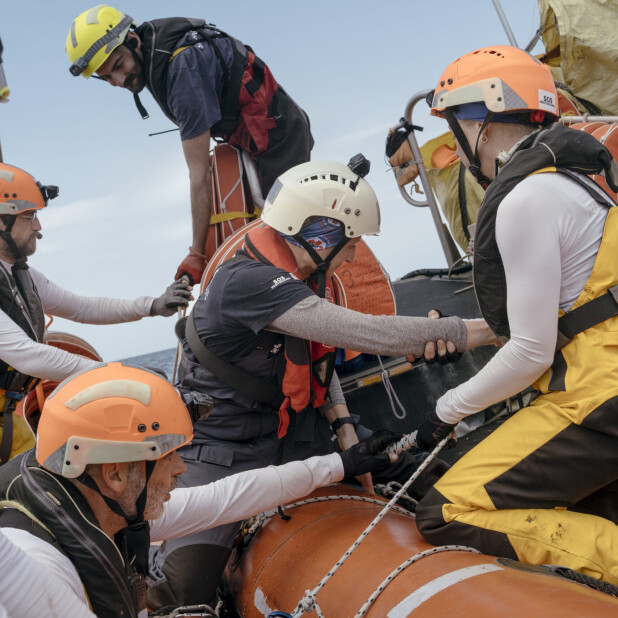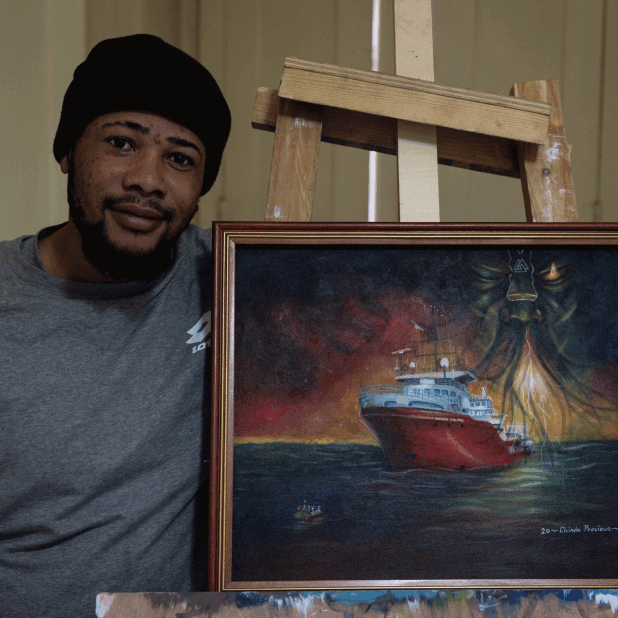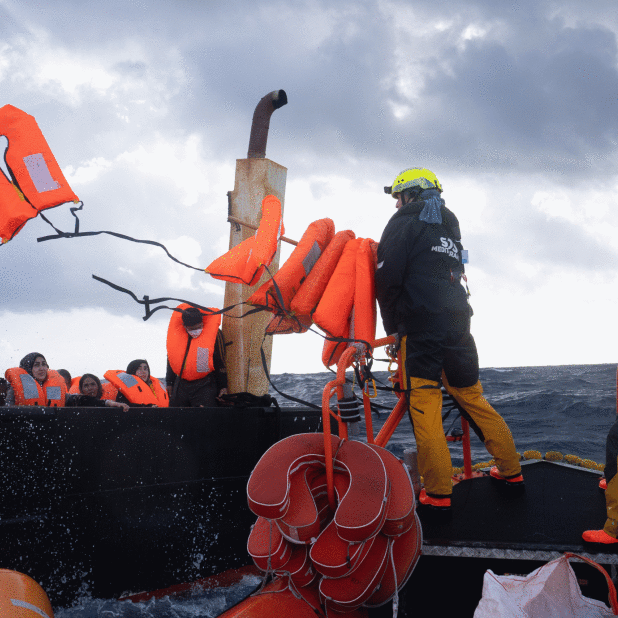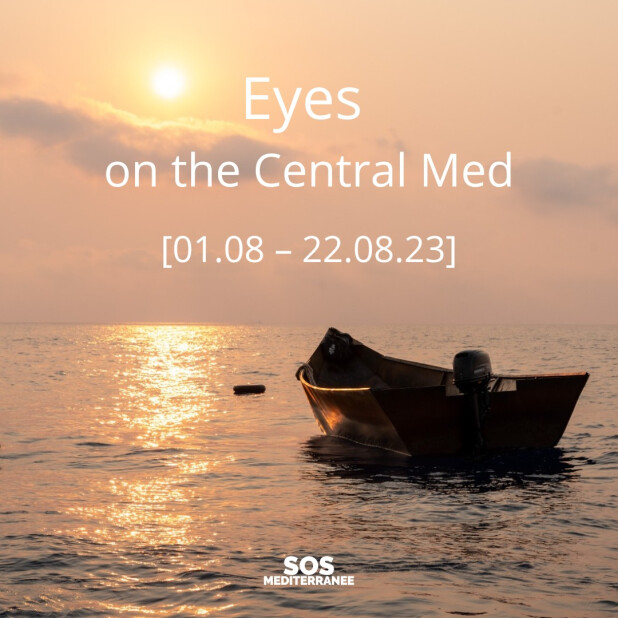
[02.02 – 13.02.23] The following publication by SOS MEDITERRANEE intends to shed light on events which unfolded in the central Mediterranean in the past weeks. It is not intended to be exhaustive, but rather to provide a general update on maritime search-and-rescue-related matters occurring in the area we have been operating in since 2016, based on public reports by different NGOs, international organisations and the international press.
Critical rescues conducted by civil NGO ships, mourning the death of three people
On the night of Thursday to Friday, February 3, the Sea-Eye 4 operated by Sea-Eye conducted two rescue operations, rescuing a total of 107 survivors. Two dead bodies were also recovered from a metal boat during the first rescue. Two survivors had to be urgently evacuated by helicopter for medical reasons, one of them died in the hospital. The Italian port of Pesaro, 1000 km away from their location at the time, was first assigned by Italian authorities to disembark the 107 survivors. Following protests from the captain of the ship, the port of Naples was eventually assigned, approximately 480 km away from the area of operations. The Sea-Eye 4 disembarked the 105 rescued persons remaining on board as well as the two dead bodies on February 6.
On February 5, according to Italian journalist of Radio Radicale Sergio Scandura, two large trawlers departing from Libya with respectively 230 and 500 people onboard were rescued by Italian coast guards in the southeast of Sicily. They were disembarked in the Sicilian ports of Pozzallo, Augusta and Messina.
On February 13, after several days of bad weather, MSF’s Geo Barents evacuated 48 people from a wooden boat in distress, in the Libyan Search and Rescue Region. Following the rescue, Italian authorities assigned Geo Barents the distant port of Ancona to disembark the 48 survivors.
More than one hundred autonomous arrivals on dinghies to Italy, with eight bodies found in one – mayor of Lampedusa asks for help
In the first week of February, La Repubblica states that 1,420 people landed in Italy, “a substantial number in line with the increase in arrivals, which have doubled since last year […] another demonstration that the pull factor does not exist (as the numbers of landings have been certifying for years) is what has been happening over the last few days in the Libyan SAR area, where the two large humanitarian ships that continue their missions, the Geo Barents and the Ocean Viking, have not seen or rescued a single boat for a week.”
At least 52 people are reported to have sailed off from Sfax in Tunisia on January 28. During the dire journey, ten people are known to have perished: Italian rescuers recovered eight bodies in a boat on February 2, while bringing 42 survivors ashore to the island of Lampedusa. One of the dead women was reportedly pregnant.The bodies of two people were reported missing and couldn’t be found after initial search operations: survivors told investigators that a four-month-old baby slipped out of the boat after his mother, who was holding him, collapsed and died from exposure. A man is reported to have drowned while trying to recover the baby’s body.
On February 4 and 5, more than one hundred autonomous arrivals on dinghies took place in Lampedusa.
A woman was also found clinging to her life-vest for hours in the Strait of Sicily. She was rescued by a Tunisian fisherman’s boat in the night between Friday and Saturday (February 3-4).
The mayor of Lampedusa, Filippo Mannino called for government’s help, explaining that “dead migrants were now being brought to be buried in Lampedusa almost weekly.”
Interceptions and forced returns to Libya persist, extending to Italian fishing boats
In the past two weeks, a total of 531 people were intercepted and forcibly returned to Libya, while Italy started providing the first of five additional boats promised to the Libyan Coast guards, on February 6.
Between January 29 and February 4, 2023, 131 men, women and children were intercepted by Libyan maritime authorities and forcibly returned to Libya according to the International Organisation Migration (IOM).
Between February 5 to 11, this figure rose to 400 people.
In the meantime, on February 3, four Italian fishing boats engaged in a fishing campaign about 80 Nautical Miles North of Tripoli were reportedly approached by a Libyan patrol boat, attempting to seize them.
This lead to a prompt intervention of the Italian navy, with the San Marco ship and its helicopter, which reportedly drove the Libyan patrol boat away, putting a stop to the attempt of seizure.
Court of Catania decides the Italian inter-ministerial decree was “unlawful conduct” while Italian government apologizes for “erroneous and defamatory” motion to intervene as plaintiff in trial against Iuventa
On February 6, the court of Catania, Sicily, decided that the issuance of an Italian inter-ministerial decree that imposed a ban on SOS Humanity’s rescue ship Humanity 1, on November 4, 2022, from stopping in territorial waters was “unlawful conduct”. It would have prevented “in a discriminatory manner the right to rescue and access to the asylum procedure” for a part of the 179 survivors onboard. “This ruling by an Italian court underscores that the new Italian government is obliged to follow international law,” says Mirka Schaefer, Advocacy Officer at SOS Humanity.
On February 10, the holding of the trial against twenty-one human rights defenders engaged in sea rescue missions started. The crews of the Iuventa search and rescue ship and members of several NGOs including Sea Watch, Save the Children and Médecins sans Frontières are accused of “having colluded with human traffickers to allow for the unauthorized entry of migrants” into Italy between 2016 and 2017, in what is the country’s biggest trial against sea-rescue charities.
The ongoing proceedings were condemned by UN Special Rapporteur on the situation of human rights defenders Mary Lawlor, who called for the “end of the criminalization of human rights defenders engaged in sea-rescue missions”
During the trial, according to Iuventa crew, the Italian government apologized for “erroneous and defamatory” motion to intervene as plaintiff in the trial.
Credits: Nissim Gasteli / SOS MEDITERRANEE
